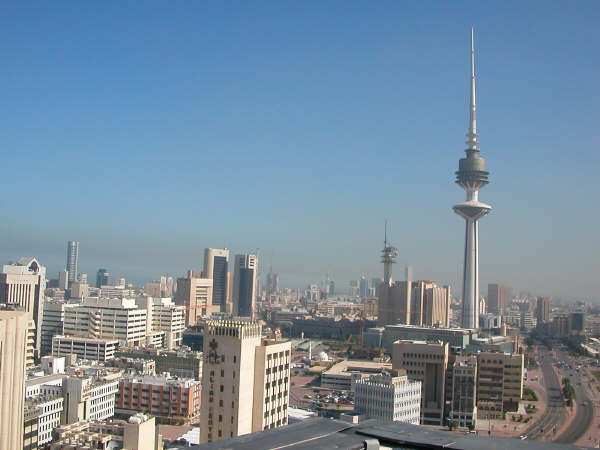The Second Palestinian Nakba: Kuwait and the Iraq War
 by Itamar Tzur
by Itamar Tzur
The Palestinians use the word “nakba” (catastrophe) to describe the exodus of Palestinians before and during the 1948 war against Israel. After the conflict, there were approximately 700,000 refugees who did not return to their homes in Israel. Many remained in exile of their own volition, and today they and their descendants still claim a “right of return.”
In 1990, when Iraq was in an economic crisis, Saddam Hussein ordered the Iraqi Army to invade Kuwait. We know the rest of the story — how the West rallied to Kuwait’s defense (in part to protect its oil interests), and pushed Saddam back into Iraq.
But what don’t we know about that war?
During the conflict, the Palestinians were divided into two camps: those who supported Iraq and those who supported Kuwait. Some leaders, like Mahmoud Abbas and Yasser Arafat, supported Saddam. But others did not.
Their resistance led to Iraqi persecution of Kuwait’s Palestinian community. Due to Iraqi massacres and other violence, approximately 200,000 Palestinians were forced to flee Kuwait, leaving their homes and possessions. The rest of the Palestinian community in Kuwait suffered heavy persecution, unemployment and hunger.
After the liberation of Kuwait in February 1991, the persecution of the Palestinian Kuwaitis continued. The Al-Sabah family, who ruled Kuwait, never forgave the Palestinian leaders who supported Iraq, and expelled almost all of the remaining members of the Palestinian community. Most of them had to flee to Jordan, since a large majority still retained Jordanian citizenship. The vibrant Kuwaiti Palestinian community of 400,000 men, women and children was eventually reduced to 30,000.
The destruction of the Kuwaiti Palestinian community caused a major crisis in the PLO leadership. But Arafat was lucky. Approximately a year and a half later, a new Israeli government renewed diplomatic relations with the Palestinians, which led to the Oslo Accords. This helped save Arafat’s position in the PLO — and the world.
 Pro-Hamas Protests Sweeping US Campuses Cross Atlantic, Engulf Elite Paris University
Pro-Hamas Protests Sweeping US Campuses Cross Atlantic, Engulf Elite Paris University A Letter to eBay: Possible Unlawful Boycott of Israel and Alleged Discriminatory Price Gouging
A Letter to eBay: Possible Unlawful Boycott of Israel and Alleged Discriminatory Price Gouging Here’s the Truth About How Israel Treats Its Arab Citizens
Here’s the Truth About How Israel Treats Its Arab Citizens Yizkor: We Should Remember the Best Version of Our Loved Ones
Yizkor: We Should Remember the Best Version of Our Loved Ones Netflix Epic on Moses Platforms Biased Scholar Who Expressed Joy on Oct.7
Netflix Epic on Moses Platforms Biased Scholar Who Expressed Joy on Oct.7 Blinken Says Anti-Israel Campus Protests a ‘Hallmark of Democracy,’ Decries ‘Silence’ on Hamas
Blinken Says Anti-Israel Campus Protests a ‘Hallmark of Democracy,’ Decries ‘Silence’ on Hamas Israeli Civilian Dies of Wounds After Hezbollah Attack on Northern Israel, IDF Says
Israeli Civilian Dies of Wounds After Hezbollah Attack on Northern Israel, IDF Says Egyptian Delegation in Israel for Talks on Gaza Hostages
Egyptian Delegation in Israel for Talks on Gaza Hostages US Official Blames Hamas Leader Sinwar for Lack of Hostage Deal
US Official Blames Hamas Leader Sinwar for Lack of Hostage Deal Network Behind Eruption of Anti-Israel College Campus Protests Revealed in New Report
Network Behind Eruption of Anti-Israel College Campus Protests Revealed in New Report




 US Official Blames Hamas Leader Sinwar for Lack of Hostage Deal
US Official Blames Hamas Leader Sinwar for Lack of Hostage Deal Egyptian Delegation in Israel for Talks on Gaza Hostages
Egyptian Delegation in Israel for Talks on Gaza Hostages Israeli Civilian Dies of Wounds After Hezbollah Attack on Northern Israel, IDF Says
Israeli Civilian Dies of Wounds After Hezbollah Attack on Northern Israel, IDF Says Blinken Says Anti-Israel Campus Protests a ‘Hallmark of Democracy,’ Decries ‘Silence’ on Hamas
Blinken Says Anti-Israel Campus Protests a ‘Hallmark of Democracy,’ Decries ‘Silence’ on Hamas Netflix Epic on Moses Platforms Biased Scholar Who Expressed Joy on Oct.7
Netflix Epic on Moses Platforms Biased Scholar Who Expressed Joy on Oct.7